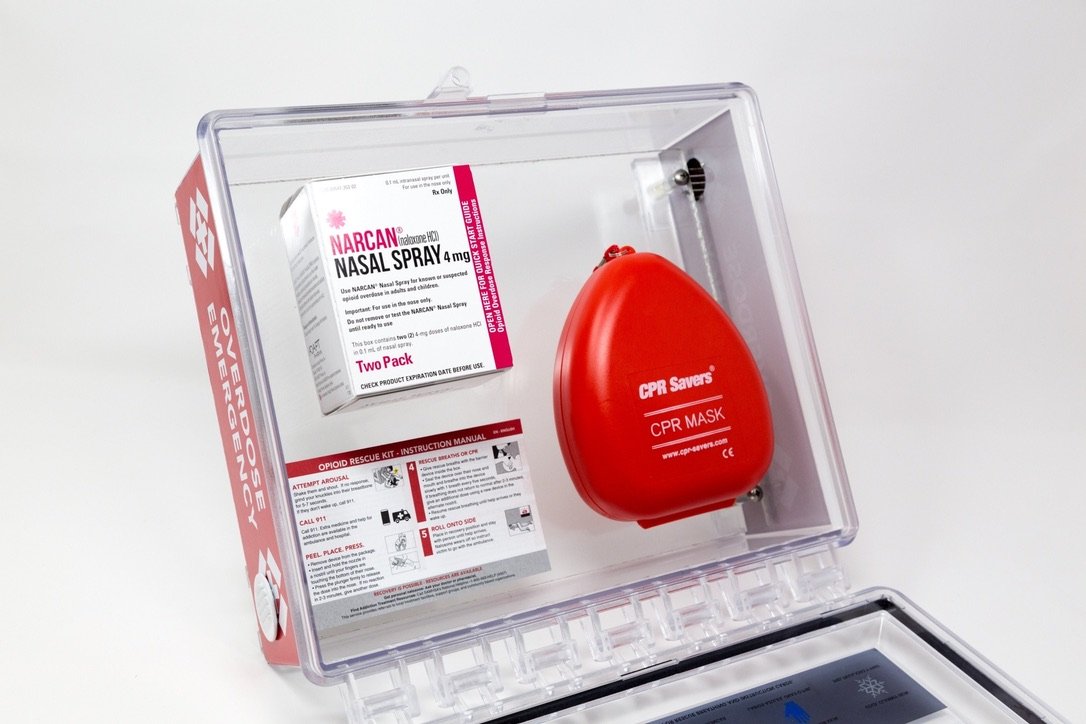
Indiana Gov. Eric J. Holcomb joined the Indiana Family and Social Services Administration’s (FSSA) Division of Mental Health and Addiction Monday to announce the state’s new plan to expand access to the opioid reversal agent naloxone.
Working with Overdose Lifeline, Inc., the state will purchase 24/7 “NaloxBox” units that will be placed at any business or community entity that wishes to participate. The units will be installed in an accessible and highly visible area. Those who receive the unit will be responsible for monitoring the box and requesting naloxone refills after use.
“Making overdose response tools like naloxone readily available to any Hoosier who may encounter an individual suffering from an overdose is critical in addressing the drug epidemic,” Holcomb said. “We’re committed to raising awareness about the need for bystanders to carry this lifesaving drug, which is why we’ve made it available via so many avenues, oftentimes at no cost to Hoosiers.”
Each unit consists of a hard acrylic box mounted to an exterior wall accessible 24/7 and contains six to eight doses of naloxone, instructions for use, and treatment referral cards.
Overdose Lifeline, a nonprofit dedicated to helping those with substance use disorder, plans to buy and install 215 NaloxBox units across the state, with at least one unit in each county.
The total cost for the units will be $58,200 and will be paid for by a federal Substance Abuse and Mental Health Services Administration opioid response grant for the state.
Advocates said they hope the units will help address the rising naloxone administration rates during the COVID-19 pandemic and the stress administering the drug in a hospital emergency room puts on the health care system.
“Our mission is to save lives from a disease that has devastated communities across our state,” said FSSA Secretary Jennifer Sullivan. “NaloxBoxes are just one innovative strategy we’re using to support Hoosiers with substance use disorders. By normalizing access to this overdose reversal tool, we’re reducing the stigma often associated with opioid overdose.”




